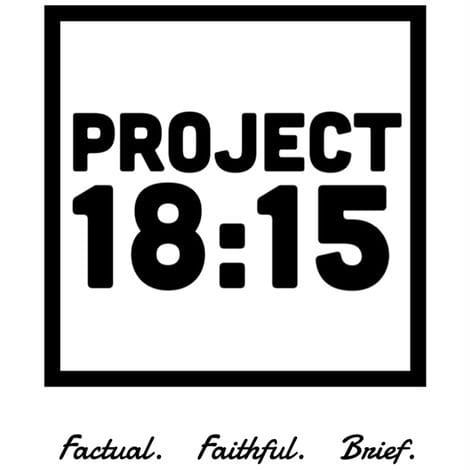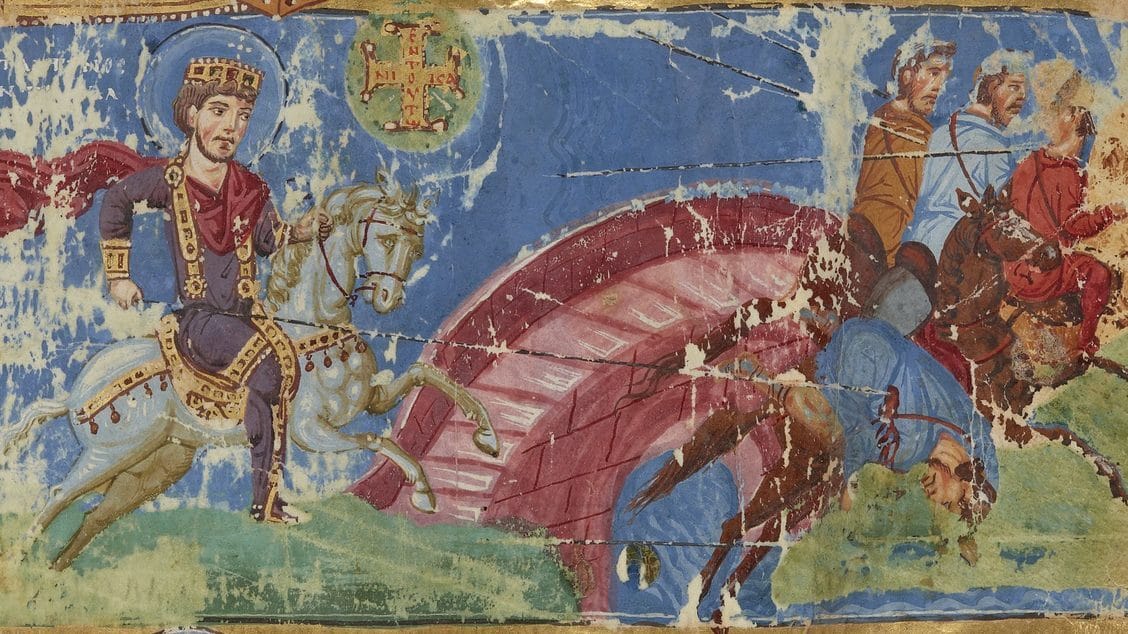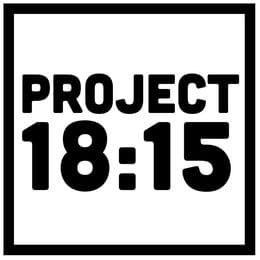
It's Saturday, July 22, 2023.
Today’s edition covers the Egyptian president’s pardoning of a Coptic rights activist, the state of religious accommodations in U.S. colleges, the significance of Constantine’s conversion, and more.
If you get value out of this briefing, please share this link with a friend.
Have something to say about this content? Submit your thoughts here.
Of Christian Concern
EGYPTIAN PRESIDENT PARDONS COPTIC CHRISTIAN SENTENCED TO PRISON FOR SPEAKING OUT ABOUT DISCRIMINATION

Patrick Zaki, a Coptic Christian, is a researcher for the Egyptian Initiative for Personal Rights (Photo: EIPR).
Human rights activist and researcher Patrick Zaki was sentenced to three years in prison on Tuesday for “spreading false news” in an article he wrote about his experience of discrimination as a Copt (an ethno-religious Egyptian Christian). On Thursday, however, amidst international outcries, he was pardoned by Egyptian president Abdul Fattah al-Sisi.
Zaki, a student of women and gender studies at the University of Bologna in Italy, was arrested in Cairo on February 7, 2020 and allegedly subjected to torture. After 19 months of pretrial detention, he was indicted for allegedly spreading false news in the July 2019 article, published on the news website Daraj, titled “Displacement, Killing, and Restriction: A week’s diaries of Egypt’s Copts.” After a series of postponements, he was released on December 7, 2021 pending trial. On Tuesday, the final verdict was issued: three years in prison.
Zaki’s case received widespread attention in Italy and elsewhere, garnering comments, for example, from the Italian Prime Minister Giorgia Meloni, the U.S. State Department, and several U.S. legislators. Sisi’s pardon of the activist was welcomed by many, with Meloni thanking him “for this very important act.” Rights activist Hossom Bahgat welcomed the news and called “for the immediate release of thousands still detained in Egypt on political grounds.”
MANY U.S. COLLEGES DO NOT HAVE RELIGIOUS ACCOMMODATIONS FOR STUDENTS, REPORT SAYS

Many U.S. college policies do not include prayer spaces for Muslims (Photo: Michael Burrows).
A dissertation by North Carolina State University doctoral student Gordon Maples claims that many U.S. colleges do not have religious accommodations for students. Of the 122 campuses assessed in the report, 55 had visible religious accommodation policies—meaning, a majority (54.5%) did not.
Maples found that more public universities (~81%) had religious accommodation policies than private-nonsectarian universities (58.1%). The numbers were smaller for sectarian institutions: “24.1% of Protestant institutions, 21.4% of Catholic colleges, and 6.6% of Evangelical institutions.”
Of the policies analyzed, only 25% “mentioned religious accommodation beyond excused class absences for holiday observance,” such as accommodations for diet, prayer, fasting, etc. (such as prayer spaces for Muslims).
According to Maples, since Christianity is normalized in the U.S., “the students who are most likely to require the invocation of a religious accommodation for their practices are non-Christian, religiously minoritized students…” He says his findings indicate “a pressing need to renovate existing religious accommodation policies at universities and for more colleges to develop religious accommodation policies, as many currently lack them.”
Also Noteworthy
→ An 18-year-old Nebraskan woman is sentenced to 90 days in prison for “concealing or abandoning a dead body” after she aborted, burned, and buried her unborn child. Her mother, who helped her, will be sentenced on September 22.
→ An Associated Press poll finds that 84% of U.S. adults say their state should allow abortion in cases of rape or incest, 75% if the child would be born with a life-threatening illness, and 54% for any reason.
→ Pastor J.D. Greear, former president of the Southern Baptist Convention, opposes the convention’s recently proposed constitutional amendment that would result in disfellowshipping churches with a woman as a “pastor of any kind.”
→ Movieguide, a Christian review site, warns about the feminist messaging in the new Barbie movie. Plugged In, another Christian review site, warns about the graphic sexual content in the new film Oppenheimer. The-Numbers.com predicts an over $200-million box office weekend between those two blockbusters, which movie fans have jointly dubbed ‘Barbenheimer.’
→ Chicago mayor Brandon Johnson released a document outlining his plans for the city, including the plan to “to enforce Chicago’s ‘bubble zone’ ordinance,” which prevents anti-abortion activists “from approaching within eight feet of a person within 50 feet of an abortion clinic…”
→ American Bible Society reports, among other data, that only two out of five Americans (39%) use the Bible three or more times per year. Women (41%) are more likely to use it than men (36%), and black Americans (57%) are more likely to use it than whites (35%) or asians (27%).
→ United Church of Christ passes a resolution affirming “the right of all people to access reproductive healthcare including contraception and abortion,” referring to “forced birth” as “an act of sexual violence,” and calling on churches to help people obtain abortions.
Content Catch-Up
Recent, notable content by Christian creators.*
→ Baby Saved From Abortion: A short video clip posted by Maytown Stands for Life shows a Spanish-speaking couple outside of a Planned Parenthood convinced by a woman who speaks Spanish to turn away from the clinic, while Planned Parenthood escorts who did not know the language stood by helplessly. (Video)
→ Debating the Term “Biblicism”: Responding to an excerpt from a new book by theologian Matthew Barrett, who denounces the term “biblicism,” Pastor James White argues for the usefulness of the term. (Video)
→ “Build-A-Baby”: A satirical video by Loor.TV and Choice42.com exposes the ethical problems with in vitro fertilization (IVF). (Article with Video)
*Not necessarily an endorsement
The Bible, Briefly
All Authority In Heaven and On Earth
Matthew 28:18 says, “And Jesus came and said to them, ‘All authority in heaven and on earth has been given to me.’”
These first words of the Great Commission, which the resurrected Jesus spoke to His disciples on the Galilean mountain, can sometimes be overlooked. The Apologetics Study Bible observes one aspect that some readers may miss: Jesus’ claim here is probably an allusion to Daniel 7:13-14.
Those verses record the prophet’s vision of the coming Messiah, saying in part, “And to him was given dominion and glory and a kingdom, that all peoples, nations, and languages should serve him; his dominion is an everlasting dominion, which shall not pass away, and his kingdom one that shall not be destroyed.”
So, Jesus’ statement “indicates that [He] now began His messianic reign…” He had conquered death, and He was now reigning over all of creation.
Another passage that touches on this theme is Philippians 2, where it is written, “Therefore God has highly exalted him and bestowed on him the name that is above every name, so that at the name of Jesus every knee should bow, in heaven and on earth and under the earth, and every tongue confess that Jesus Christ is Lord, to the glory of God the Father” (Phil. 2:9-11).
Notice that in each of these texts, the Father gives something to Jesus: authority, dominion, and a name above every name. Also notice that the verses in Matthew and Philippians say this has already happened. Jesus, the resurrected Messiah, currently has all authority—over everything. There is nothing outside of His reign, and nothing ever will be.
There are only two appropriate responses to this fact. For His enemies, fear. For His people, comfort.
Church History Tidbit
The Significance of Constantine’s Conversion

Illustrated painted parchment Greek manuscript (879-883 AD) of the homilies of Gregory of Nazianzus (Bibliothèque nationale de France, Public Domain)
According to professor of historical doctrine Tony Lane, there are “two major turning points in the life of the early church.” The first is the sacking of Jerusalem in AD 70, which ended the dominance of the Jerusalem Church and accelerated the transformation of the church into a predominantly Gentile institution. The second was the conversion of the Roman Emperor Constantine to Christianity in 312—a dramatic conversion, according to church historian Eusebius, who knew Constantine personally.
Eusebius reported that Constantine had a vision in which “he saw with his own eyes the sign of a cross of light in the heavens, above the sun, and bearing the inscription, ‘By this symbol you will conquer,’” and that night dreamed that Christ appeared to him with the same sign, and commanded him to make a likeness of it and “use it as a safeguard in all engagements with his enemies.” Constantine did this, and also began inquiring into the doctrines of Christianity, honoring Christian ministers, sponsoring the building of churches, and more.
“Until this time,” Lane writes, “the church was a dissenting minority, intermittently persecuted. This changed rapidly. Constantine ended persecution and offered the Church support and official favor. Of the emperors who followed him, only one was a pagan. Christianity became the official state religion.”
This formalization occurred in 380 under a subsequent emperor, Theodosius. By the year 500, Lane says, “The great majority of people within the Roman Empire called themselves Christians.”
Spread the knowledge. Share Project 18:15.
More Christians should know more.
Spread the knowledge by sharing
Project 18:15 with your friends.




Your feedback is vital. The success of this project depends on hearing from you, the reader, with your thoughts and ideas about how this digest can best serve you. Please reply to this email and let us know how we’re doing, and what we can do better.
Why "18:15"? The name Project 18:15 is based on Proverbs 18:15: “An intelligent heart acquires knowledge, and the ear of the wise seeks knowledge.” The aim is for this weekly email—a Christian news briefing, a Bible study, and a Church history lesson rolled into one—to be one way you keep abreast of current events and acquire knowledge you might not acquire elsewhere.
Scripture quotations are from The ESV® Bible (The Holy Bible, English Standard Version®), copyright © 2001 by Crossway, a publishing ministry of Good News Publishers. Used by permission. All rights reserved.

Copyright (C) " target="_blank">unsubscribe
